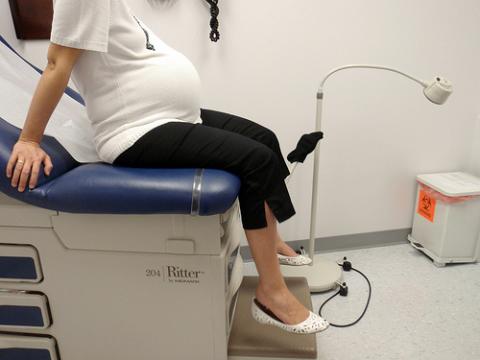Inequality and pregnancy at work

With more Irish women in the work force than ever before, an increasing number are experiencing some form of unfair treatment. This is most common among women on lower incomes. By Bernard O'Rourke.
The HSE's Crisis Pregnancy Programme (CPP) has revealed that almost 30% of the 2,300 women they surveyed for the study Pregnancy at Work: A National Survey, released today, experienced some form of unfair treatment from their employers as a result of their pregnancy.
The most common form of unfair treatment was being assigned unsuitable work or workloads. A further 5% of women employed during pregnancy reported that they were dismissed, made redundant or treated so badly that they had to leave their job
.The study is the first nationally representative survey of women's experiences at work during and after pregnancy to be carried out in Ireland. The survey sample of 2,300 women was randomly selected from the Department of Social Protection's universal child benefit register and comprised women whose youngest child was born between July 2007 and June 2009According to one of the report's authors, Dr Helen Russell, the fact that the "majority of Irish women are now employed during pregnancy" means that this is an "increasingly pertinent issue for women, employers and the state". Dr Russell says that "the study provides evidence that a significant minority face a range of unfavourable treatment", including loss of salary or bonuses; denial of promotion; unpleasant comments from managers/co-workers, and being discouraged from attending antenatal appointments during work time.
The report shows that unfair treatment was most commonly experienced by women working in the retail and wholesale sector, as well as in organisations with few flexible work arrangements or without a formal equality policy. Older women in better paid employment experience tended to fare better at work during pregnancy.
Those women with higher incomes were more likely to avail of the extended period of unpaid maternity leave, and were also more likely to receive top-up payments from employers while on leave. By contrast women in lower paid jobs were less likely to receive such top-up payments. Because of financial pressures they tended not to avail of unpaid maternity leave and returned to work sooner.
Another of the report's authors, Dr Dorothy Watson, says that the report highlights how "inequalities among women can be exacerbated around the time of childbirth". This is shown by the fact that "women with higher educational and occupational positions, and who had the support of a working partner, clearly had more choices around taking unpaid as well as paid maternity leave". On the other hand, "women with lower levels of education and those in insecure employment were more likely to experience pressures to return to work sooner or to opt out of the labour market altogether after the birth of their child."
Renee Dempsey, CEO of the Equality Authority, says that while "the majority" of employers are supportive of women during pregnancy, it is necessary for them to "accept and embrace their responsibilities in this regard" to a far greater extent.
The report calls for an "expansion in paid maternity leave or parental leave", as well as more flexible work practices and greater availability of information for both employers and pregnant women.
Image Top: Daquella Manera
